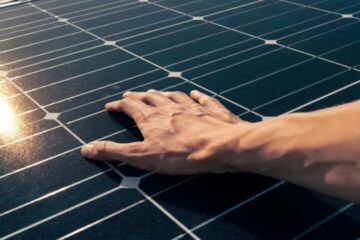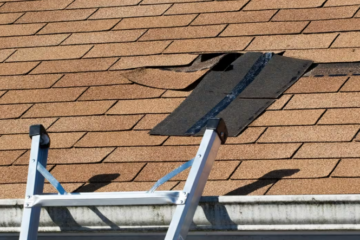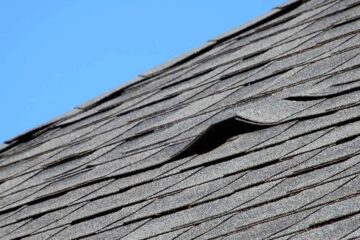How Energy Efficient Is Your Roof?

To heat and cool our homes takes a lot of energy. You might be interested in ways to make your home more energy-efficient if you are concerned about the environment and your monthly utility bills. Are you achieving your efficiency goals with your roof? Let’s look at how efficient your roof is in terms of energy efficiency and what you can do to increase your roof’s energy efficiency.
How Energy Efficient Are Your Roofs?
There are many factors that affect the energy efficiency of your roof. These five factors will help us determine if your roof is energy efficient.
Heat Gain
Roofs that have a high heat gain are less efficient than roofs with a lower heat gain. Because they retain heat in the summer, it is more expensive to cool your home. Heat gain is a good option if your home is located in colder areas. It makes heating more efficient.
Reflectivity
Reflectivity refers to how much heat and light is reflected off your roof. The reflectivity of your roof is affected by its color and material. A lighter roof will reflect more heat and be more efficient than a darker one.
Roofing Materials
Certain roofing materials are more efficient than others. Metal roofs, for example, are lighter than asphalt shingle roofs. They also have a lower impact on your home’s structure. Metal roofs can be recycled if they need to be replaced.
Durability
Roofs with a longer lifespan are more energy-efficient. Roofs that are constantly in need of repairs or have a shorter lifespan before they are replaced are less efficient and cost more than a roof with a long life expectancy.
Insulation And Ventillation
For an energy-efficient roof, ventilation and insulation are crucial. Insulation helps your home retain heat during cooler months. Ventilation is a way to keep your home cool during the summer months. Both of these can protect your roof against roof damage like leaks, condensation, and ice dams.
Roof Types That Are Energy Efficient
Metal roofs, tiles roofs, and some asphalt shingle roofing are the most efficient. These roofs make use of the same factors that we have just mentioned to save energy and protect your home.
Energy Efficient Metal Roofs
Metal roofs are the most durable type of roofing available. They can last between 50 and 70 years if properly installed. They require very little maintenance when compared to other types of roofing.
Metal roofing uses its reflective properties to reduce heat gain in the summer months. It can be combined with good insulation to significantly lower heating and cooling costs year-round.
Tile Roofs That Are Energy Efficient
Insulation is a key feature of tile roofs. It keeps them cool in summer and warm in winter. Tiles are a more expensive investment than asphalt shingles or metal roofing, but they have a very long life expectancy, which helps to reduce energy consumption.
Asphalt Roofs Are Energy Efficient
Asphalt shingle roofs can help improve your home’s efficiency. Asphalt shingles can be modified with heat-absorbing additives to counter heat gain. Asphalt roofs are well-known as excellent insulators. They protect your home from the elements, fluctuating temperatures, and other weather conditions.
How To Make Your Roof More Energy Efficient
Solar roofing can be a great investment to increase the energy efficiency of your roof. It will also help you manage stormwater efficiently and provide insulation and ventilation.
Install Solar Roofing
You can increase your home’s energy efficiency by using solar roofing. The efficiency, protection, and aesthetics of solar roofing technology have improved over the years. You can integrate it seamlessly into your roof design and provide an alternative method to generate energy for your home.
Manage The Stormwater
Stormwater management involves properly using gutters to redirect stormwater away from your roof, where it can hinder your roof’s energy efficiency. You might also install a stormwater collection system that you can use to water your garden or landscaping.
A green roofing roof is another way to increase your roof’s energy efficiency, use stormwater and improve insulation. Green roofs can be a little more difficult to maintain, but the economic and environmental benefits may offset some of the efforts.
Add Insulation And Ventilation
Maintaining an efficient roof is possible with proper insulation and ventilation. To increase your home’s energy efficiency, ensure that your roof has proper ventilation and that your attic has adequate insulation to protect your roof from heat loss.
An energy-efficient roof is much more than the fancy solar panels or turbines. You can also save money on heating and cooling by managing your home’s heat gain and reflectivity.
Reggie Reed Roofing is available to help you design a more efficient roof. We can help you make your roof more efficient and greener, whether you are looking for new roofing or a replacement metal roof.
This post was written by Reggie Reed! Reggie is a state-certified roofing contractor and co-owner of Reggie Reed Roofing, the best roofing contractors Clearwater FL. He is a 4th generation roofing contractor. RR Roofing offers a wide variety of roofing services for residential homes, apartment complexes, condos, commercial buildings, churches, and more. Reggie enjoys dedicating his spare time to helping underprivileged youth in his community and traveling with his family and friends.











